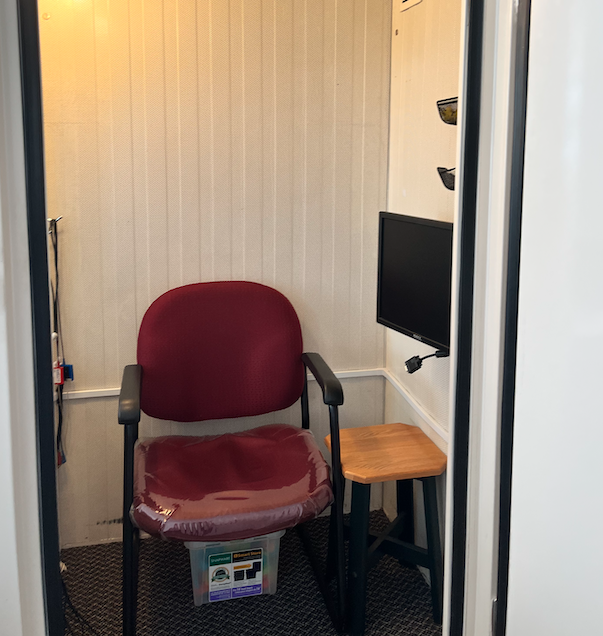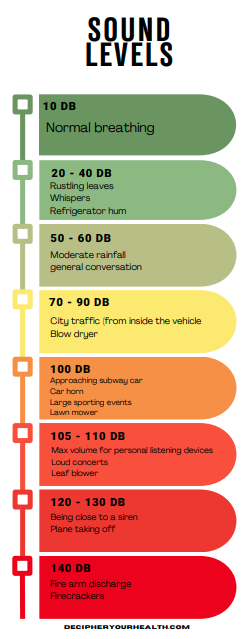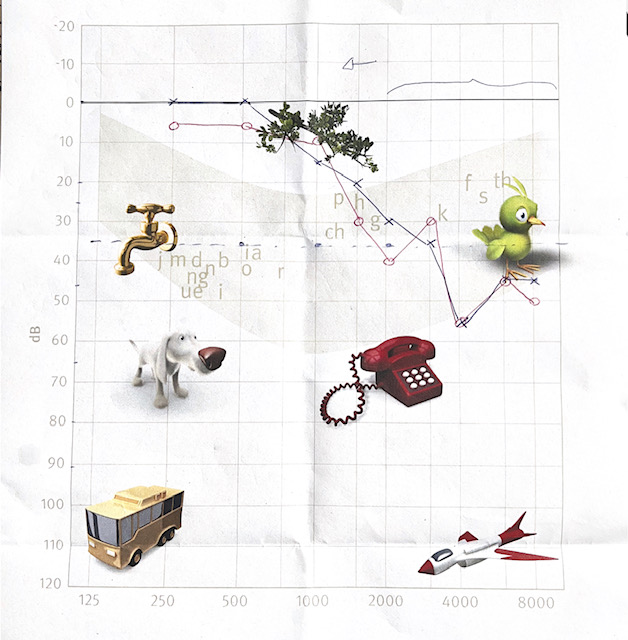
I Went for a Hearing Test – How About You?
I’ve been writing about the importance of hearing and going for a hearing test for a while now – for both clients and here at Decipher Your Health. It’s a topic that has finally started getting the attention it needs.
The Hearing Loss Association of America reports that about 48 million adults in the U.S. live with some sort of hearing loss. Yet, only 16% of people from 20 to 69 years who need hearing aids have ever used them, and only 30% of those who were 70 and older did.
Glasses vs. hearing aids
Both vision and hearing are essential senses. Yet, while 61% of adults in the U.S. have had their eyes tested within the past few years, only 20% have gone for hearing tests. Even more concerning, while 51% of adults said they have trouble with their hearing, only 11% of them went for help. Want an even worse statistic? Of the 42% of Americans who understand that even a mild hearing loss can impact their life, 56% said they would only get help if it became severe. That is having difficulty hearing things that are around 60 to 80 decibels (dB).
To give you an idea of what severe hearing loss means, look at this chart:

Sounds in the:
- Green zones won’t typically cause any harm.
- Yellow zones may be annoying.
- Orange zone can cause some damage to the hearing after only 15 minutes.
- Red zones can start causing damage in as little as 5 minutes.
Hearing loss leads to other serious problems
It’s obvious what happens if you don’t see well. You can crash into things, you might not be able to read signs or watch TV, recognize faces, etc. So, you get glasses to fix that. But hearing loss may not have such obvious effects right away, so it’s easy to miss the early signs.
You may have to ask people to repeat themselves or you might turn the sound up on your computer or television. Slowly, you may end up missing parts of conversations. If your work depends on your hearing, you might be making mistakes or missing things. You could lose your job. Or you may withdraw from social situations because you’re tired of being unable to understand what is happening around you, and you fear making yourself look foolish if you misunderstand something.
Finally, did you know that hearing loss can increase the risk of dementia? As you lose your hearing, you also lose brain stimulation, either directly or through social interaction. We wrote about dementia in this blog post, where we explain the different types of dementia, including Alzheimer’s disease.
My experience
Since I wrote so much about hearing loss and knew I’d had difficulty hearing conversations in noisy environments for many years, I decided to practice what I preached. I had a hearing test in my early 20s because I worked with hearing-impaired children. I wanted to know what they experienced when they were tested. At the time, the test showed that I had a mild loss in the upper ranges (high-pitched sounds) but was otherwise okay.
This was my result last month:

The red and blue lines indicate each ear. I can hear well if someone is speaking to me in a normal voice in a quiet environment. Things get trickier though with higher-pitched sounds.
As you can see in this image, around 30 to 50 dB includes a dripping tap (believe me, I DO hear that!) and birds chirping. Interestingly, I was told that this pattern of hearing loss, in both ears, is typically seen in people who have had repeated exposure to loud noises. That’s not me. I hate loud noise!
The recommendation
The recommendation was that while I technically did not have to start using hearing aids, they might help me if I did. I wondered if maybe aids would make me realize that there were things I wasn’t hearing but didn’t notice. It might not be an option everywhere, but the place I chose for the aids offers a 30-day guarantee on the hearing aids.
I decided to choose a pair that has Bluetooth technology. Given that I listen to my phone a lot (audiobooks, radio, music), I was worried that whenever I would have to take out the hearing aids to put in my AirPods, I could lose one, if not both. Given how expensive the aids are, that would put a significant ding in my wallet. So I thought it made sense to get the Bluetooth ones and, although they do cost more, I wouldn’t be taking them out as often, decreasing the loss risk.
I should be getting them next week. The person helping me said I should go into as many different environments as possible to see how my hearing differs with the aids. I’ll let you know how it goes! In the meantime, be sure to come back because I’m going to write a post about hearing aids themselves. I’ll discuss the aids, how they work, costs, and other issues involved in using them.
Disclaimer
The information in this blog is provided as an information and educational resource only. It is not to be used or relied upon for diagnostic or treatment purposes.
The blog does not represent or guarantee that its information is applicable to a specific patient’s care or treatment. The educational content in this blog is not to be interpreted as medical advice from any of the authors or contributors. It is not to be used as a substitute for treatment or advice from a practicing physician or other healthcare professional.




